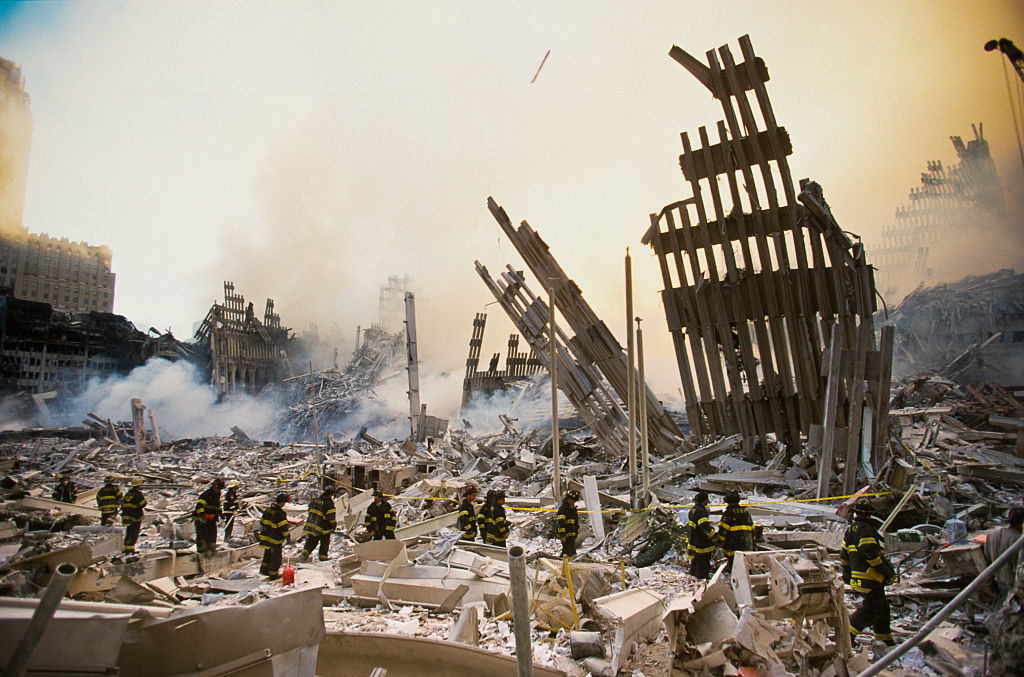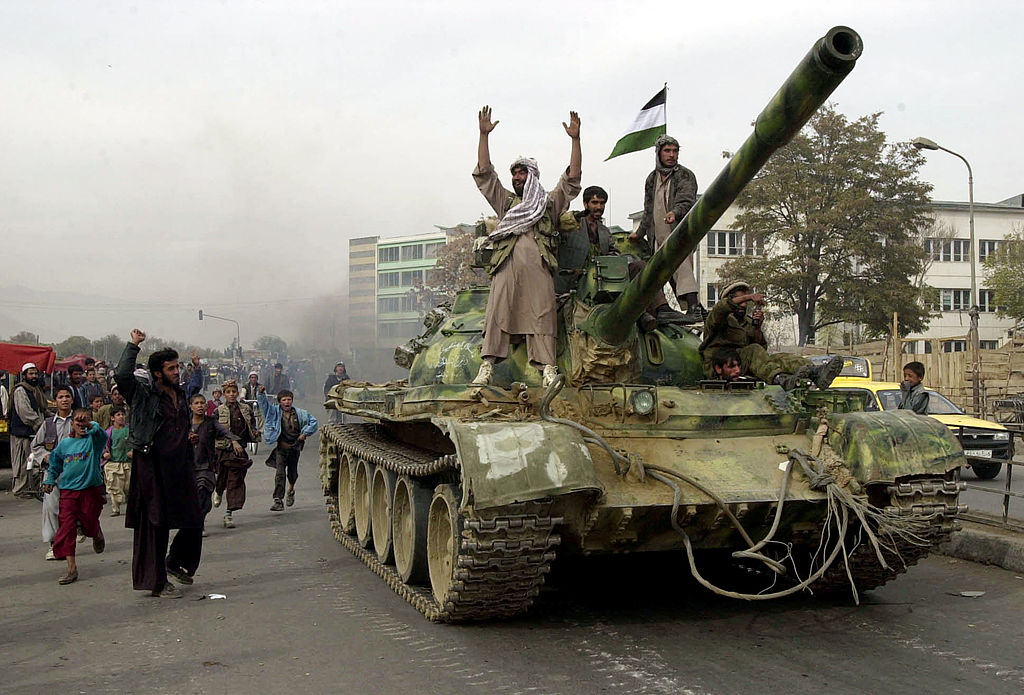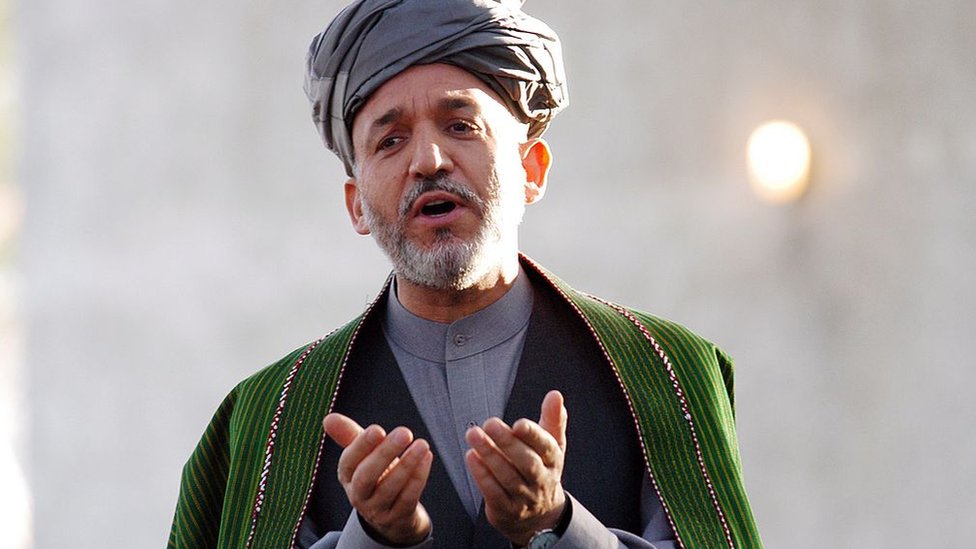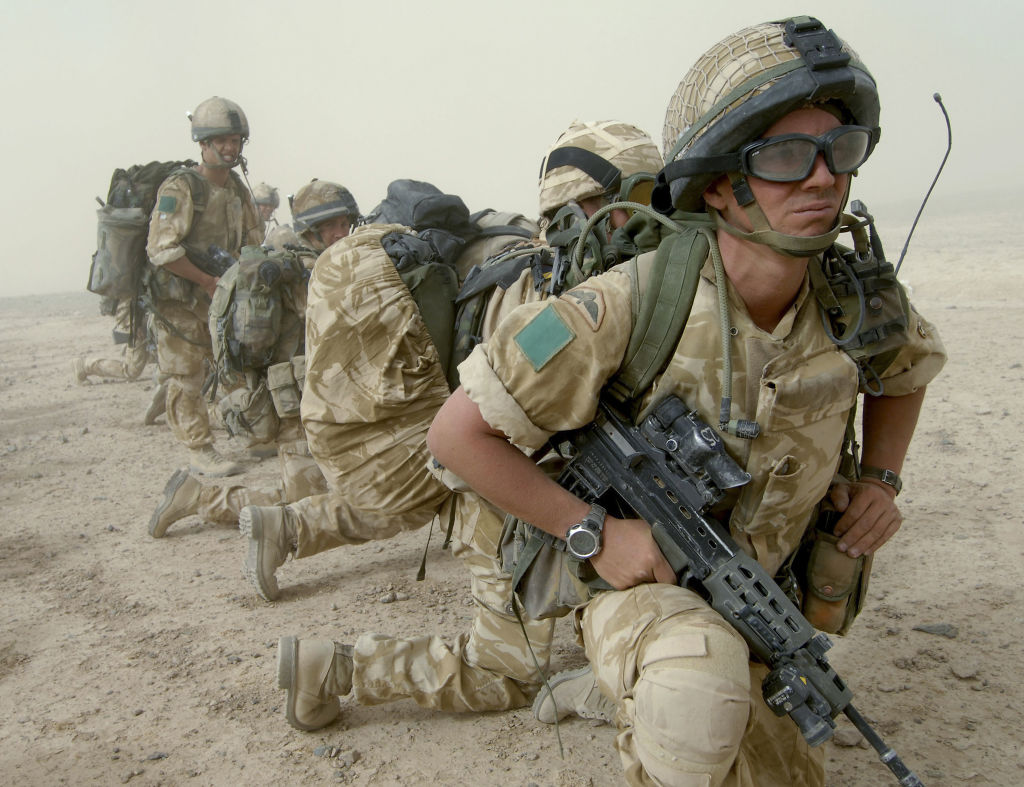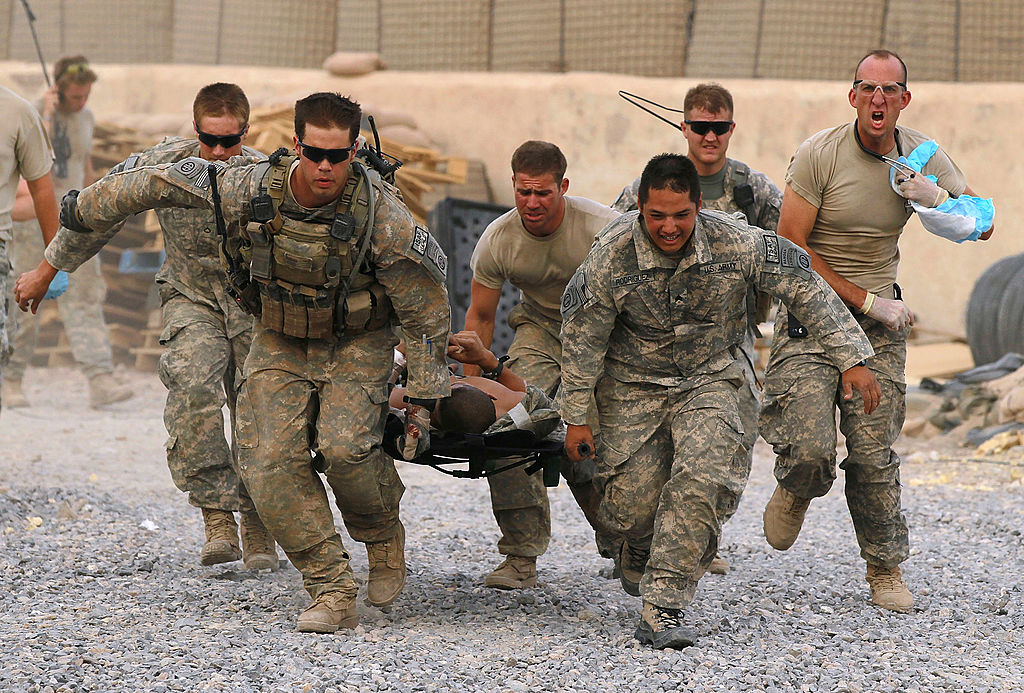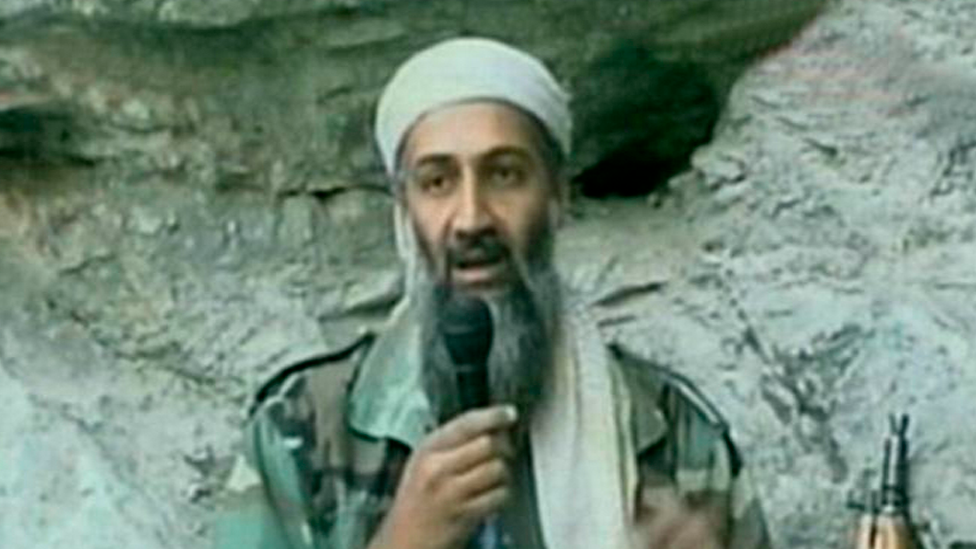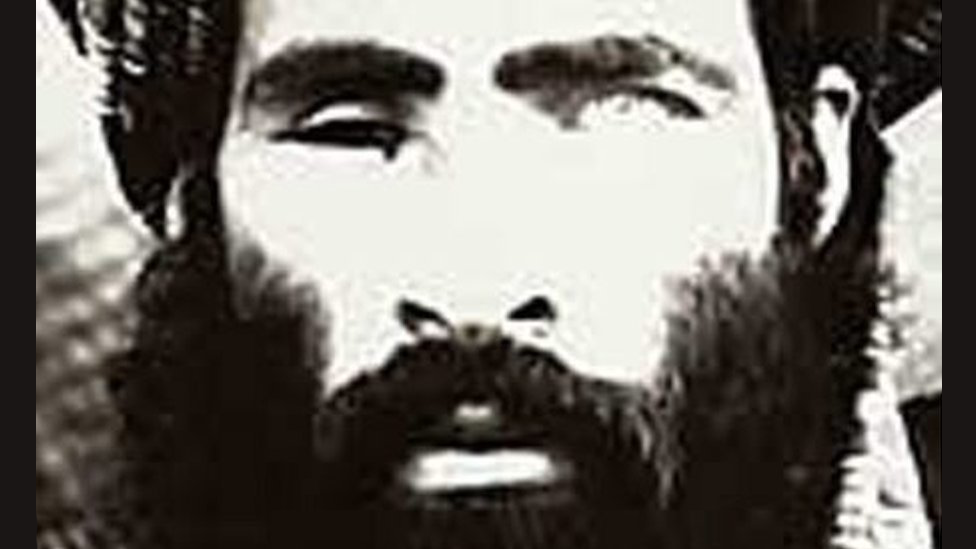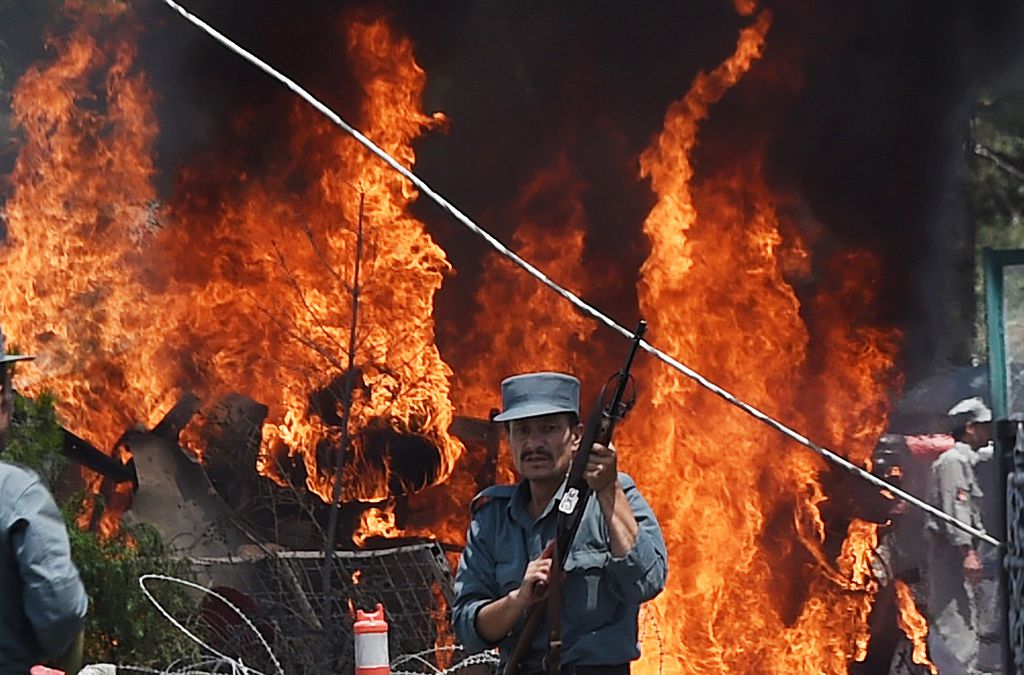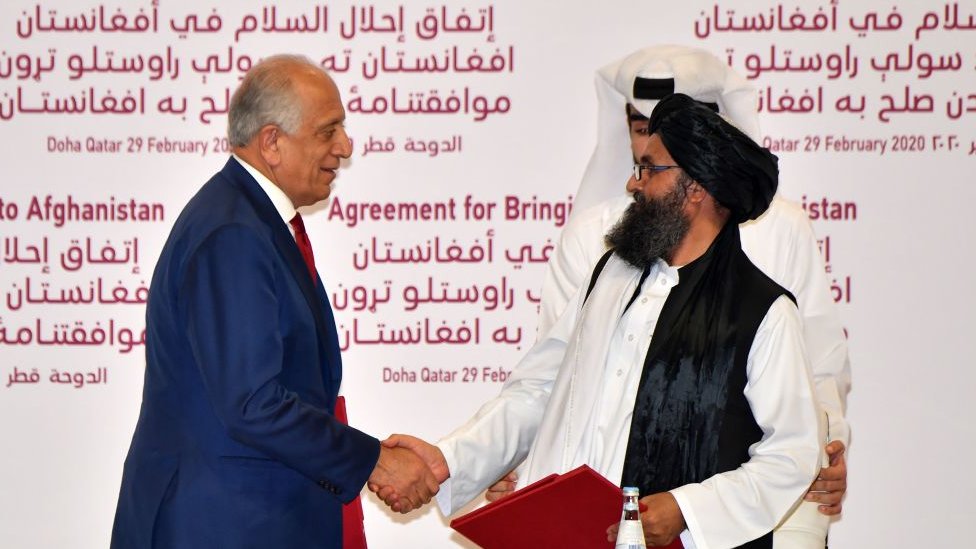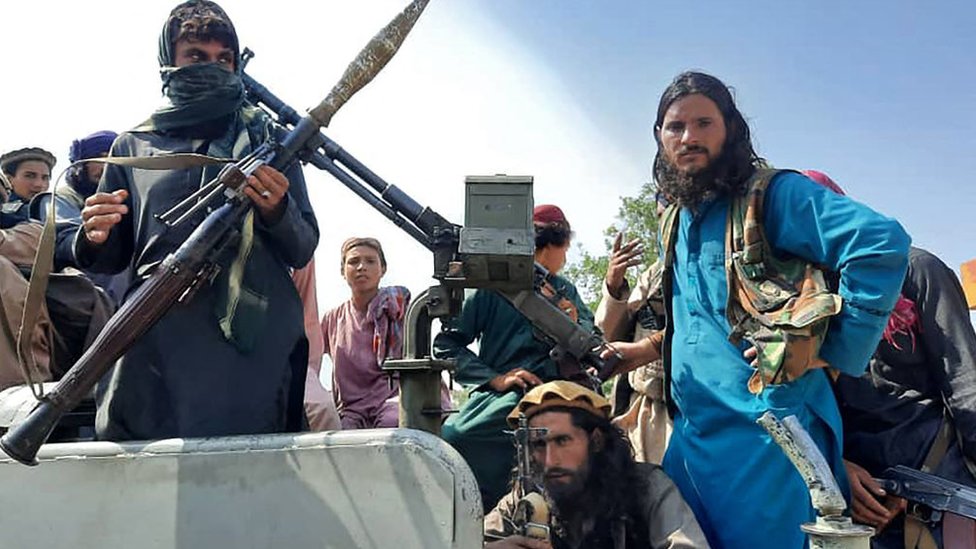Afghan conflict: Taliban take Mazar-i-Sharif, government's last northern stronghold
- Published
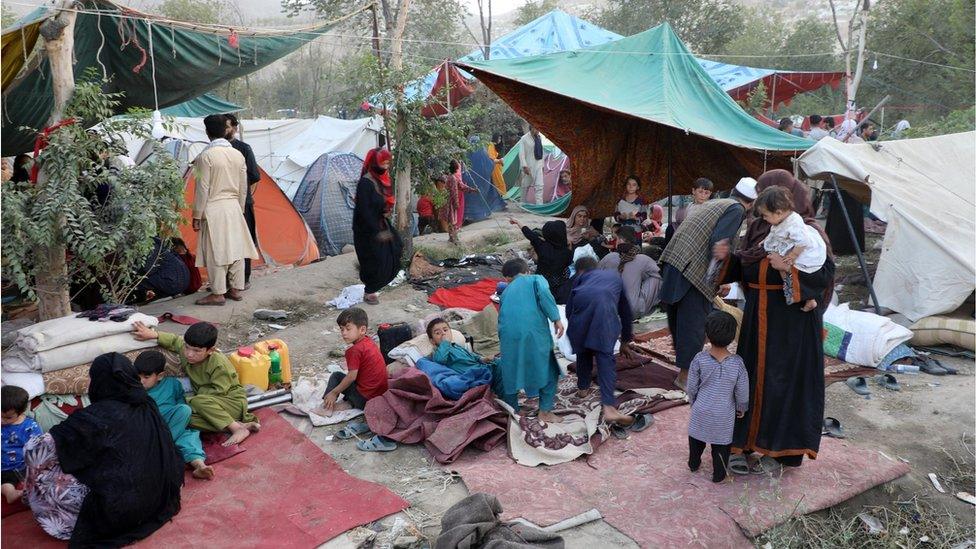
Families are staying at makeshift camps in Kabul after fleeing the violence
Taliban fighters have captured Mazar-i-Sharif, the last major city in northern Afghanistan which was still under government control.
The fall of the traditional anti-Taliban bastion marked a major gain for the militants, who have been advancing at speed as US-led forces withdraw.
President Ashraf Ghani travelled to the city just days ago to rally troops.
The Taliban are now in control of much of the country and are edging closer to the capital Kabul.
More than a quarter of a million people have been displaced by the violence, and many have fled to Kabul in the hope of finding safety.
Women in areas captured by the Taliban have described being forced to wear burkas and the militants are also reported to have beaten and lashed people for breaking social rules.
Western countries are scrambling to evacuate their citizens.
How did Mazar-i-Sharif fall?
Local officials said Mazar-i-Sharif - the capital of Balkh province and fourth-largest city in Afghanistan - fell largely without a fight.
Abas Ebrahimzada, a lawmaker from Balkh, told the Associated Press news agency that the national army were the first to surrender, which then prompted pro-government forces and other militia to give up.
Mazar-i-Sharif is a major economic centre that lies close to the borders with Uzbekistan and Tajikistan. The last time the Taliban took the city was in the 1990s.


Ethnic Uzbek warlord Abdul Rashid Dostum and prominent ethnic Tajik leader Atta Mohammad Noor are reported to have fled the province.
Footage shared on social media appeared to show Taliban militants inside Mr Dostum's empty house.
Following crisis talks with Mr Ghani earlier this week, Mr Dostum struck a defiant tone, saying: "The Taliban have come to the north several times but they were always trapped."
In a Facebook post on Saturday, Mr Noor blamed government forces for the defeat, saying they handed their weapons and equipment to the Taliban.
He said he and Mr Dostum were in a "safe place".
One resident of Mazar-i-Sharif spoke to the BBC of his fear as the Taliban made their way through the city.
"They are going door to door and we are at home and unfortunately we can't do anything," he said. "We are very afraid. My child is very afraid and my wife is crying now. What should we do tomorrow?"
EXPLAINER: Why the Taliban is gaining ground so quickly
FEATURE: Afghans living under Taliban lament loss of freedoms
PROFILE: Who are the Taliban?
Other areas also fell to the Taliban on Saturday, including the capitals of Paktika and Kunar provinces.
Then on Sunday morning, the insurgents took Afghanistan's fifth-largest city Jalalabad, the capital of Nangrahar province, without resistance. A local official said it was the only way to save civilian lives.
The Taliban now control more than half the country's provincial capitals. Kabul is the only major city still under government control.
People there who had fled the Taliban offensive could do little but wait with apprehension to see what comes next.
Some reported that militant commanders elsewhere were demanding families hand over unmarried girls and women to become wives for their fighters.
Muzhda, 35, a single woman who fled from Parwan to Kabul with her two sisters, said she would take her own life rather than let the Taliban force her to marry.
"I am crying day and night," she told AFP news agency.
Also in the capital, residents formed long queues at banks trying to withdraw their savings. Some branches had reportedly already run out of money.
There were also reports of a riot at Pul-e-Charkhi prison on the outskirts of the city, with local residents saying gunfire was heard from the facility.
What's the Afghan government doing to stop the Taliban?
In a pre-recorded TV address earlier on Saturday, President Ashraf Ghani said a top priority was the remobilisation of the Afghan armed forces to prevent further destruction and displacement of people.
Mr Ghani said he would not let a war that was "imposed" on people cause more deaths, as he praised the "courageous" security forces.
President Ashraf Ghani: ''The reintegration of the security and defence forces is our priority''
The speech came amid speculation by some that Mr Ghani may have been about to announce his resignation.
The UN has appealed to neighbouring countries to keep their borders open so that displaced Afghans can reach safety. UN Secretary General António Guterres said the situation was spinning out of control.
Violence in the country has escalated in recent weeks now that US-led forces have all but withdrawn following 20 years of military operations.
US President Joe Biden said some 5,000 American troops were being deployed "to make sure we can have an orderly and safe drawdown of US personnel and other allied personnel, and an orderly and safe evacuation of Afghans who helped our troops during our mission and those at special risk from the Taliban."
About 600 British troops are due to arrive in the city this weekend to help with the withdrawal of UK citizens. They will also assist the relocation of Afghans who helped British forces and now risk reprisals from the Taliban.
Other Western countries are also evacuating their nationals, scaling back their presence in Afghanistan and in some cases closing their embassies altogether.

Related topics
- Published13 August 2021
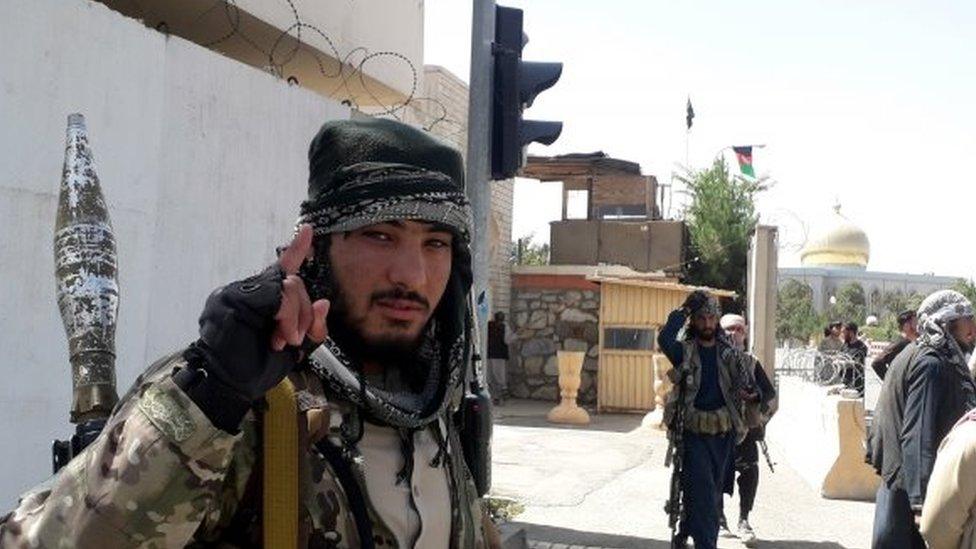
- Published13 August 2021
